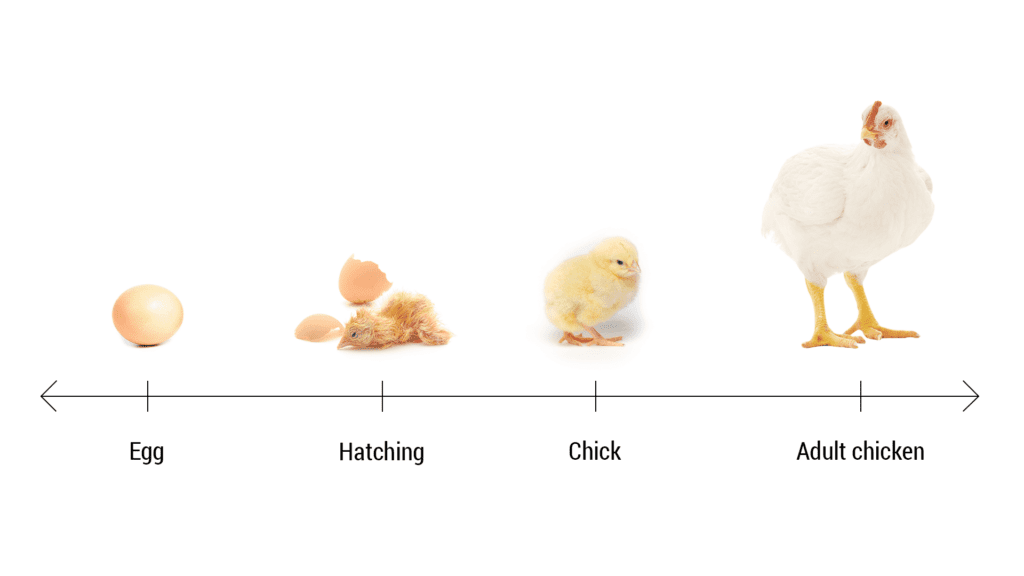Companion animals are not just our pets, they are members of our family. As such, it’s important that we ensure their happiness, health, comfort and well-being. Unfortunately, inflammation in cats and dogs is a common factor affecting their well-being and is often recognised as sickness, general unthriftiness, and/or unhappiness. An appropriate and robust inflammatory response is necessary to fight off bacteria and pathogens and repair damaged tissues. Chronic inflammation, however, may result in a cascade of negative effects.
What is inflammation?
Inflammation is way of signaling the immune system that a part of the body has been damaged and needs repair. Therefore, inflammation is necessary for life, especially from a protection standpoint in companion animals.
While an appropriate and robust inflammatory response is necessary, excessive or prolonged inflammation may become detrimental if not controlled. Inflammatory responses are divided into two categories:
- Acute inflammation is the first defensive response to a pathogen or injury. It’s a short-term process where the immune system sends white blood cells (immune cells) to the injury site or point of pathogen invasion to initiate the healing process. This response should be rapid and robust, appearing within seconds, minutes, or hours following activation of an immune response.
- Chronic inflammation occurs when the immune response remains activated and may result from failure to eliminate the cause of the injury and repair the damaged tissue or acute inflammation. Chronic inflammation may last for weeks, months, or years and often diverts nutrients away from growth and development, maintenance of epithelial tissues, and the systemic immune system in order to fuel the fight against an inflammatory response.
When our dog or cat gets sick, its food intake may decrease while the immune system redirects nutrients normally utilised for growth, reproduction, or activity to maintain the inflammatory response. When the inflammatory response persists and becomes chronic, nutrients are diverted away from functions that are needed for nourishing and maintaining skin integrity, maintenance of a shiny, healthy coat, and paw pad integrity.
Poor gut integrity is a potential cause of chronic inflammation in dogs and cats
When dogs or cats suffer from itchiness or irritation of the skin, many pet parents search for products to provide relief from the itching and irritation/redness. However, few parents realise that the inflammatory response may be rooted in poor gut integrity.
Epithelial tissues lining the gastrointestinal tract (GIT) tract serve as an important barrier to prevent bacteria, pathogens, and toxins, that occur naturally in the gut, from passing through the intestinal lining into the bloodstream. When a breakdown in this epithelial barrier occurs, we see a condition called leaky gut.
Digestive upsets or mild-to-moderate food allergies may lead to leaky gut, resulting in a loose or runny stool. This response is indicating damage or irritation within the GIT and causes the immune system to focus there, which then draws immune cells away from their focus on keeping the skin healthy.
Poor gut integrity can also be attributed to psychological stress, like not feeding your dog or cat on their regular schedule or not being home on your regular schedule. Stressful events, both physical, environmental (such as heat stress), and psychological, can cause increases in cortisol (a stress hormone) that signals a reduction in blood flow to the gut ,reducing motility and immune protection and thus increasing the potential for a leaky gut. Interestingly, between 60% and 80% of the immune system works to protect the gut against leakage and the associated damage it creates.
As these problems cascade, we may start to see breaks in the skin epithelial tissue resulting in hotspots, itchiness, dry or scaly skin, increased shedding, a rough or dull hair coat, development of a bad smell, irritability, and chronic irritating itchiness.
In addition to problems with digestive tract integrity and skin and coat condition, chronic inflammation may result in pet diabetes, obesity, fatigue or insomnia, depression, or anxiety and an increased potential for infection. So, managing your family companion’s inflammation is key to their long-term health and well-being.
The role of trace minerals
Trace minerals such as zinc, iron, manganese, and copper are not required in great amounts, yet play very significant biological roles as both structural and catalytic cofactors for proteins and immune cells; thus, these minerals are essential for life. The importance of trace minerals to cellular physiology is emphasised by the fact that approximately 30% of all proteins require a metal cofactor. In keeping with the strict requirement for metals in a variety of cellular processes, trace minerals are essential for proper vertebrate immune function.
Trace minerals can help manage the effects of chronic inflammation in cats and dogs by ensuring a robust and balanced immune response. They help build healthy first-responder cells, as well as ensuring the pro-inflammatory proteins (cytokines) are in balance with the anti- inflammatory proteins.
Zinc is the most influential trace mineral, as it plays a role in over 300 enzyme systems and is a key component in over 3 000 proteins in the body – more than any other trace mineral. It is critical to the formation of protective epithelial barriers (skin, gut lining, respiratory, and reproductive tracts) and is a key component and building block in both the skin and immune system.
Much like zinc, manganese too plays an essential role in the health and well-being of our pets. Manganese is essential to all forms of life, as it plays an essential role in many cellular processes including fat, protein, and carbohydrate metabolism, and is used by a diverse array of enzymes. Manganese, in addition to zinc and copper, form part of the antioxidant enzyme, superoxide dismutase (SOD), which is arguably one of the most important antioxidants in your body. Antioxidants are key to the healing process through cellular protection and removal of free radicals that lead to inflammation and damaged tissue.
Iron is second to zinc in its required amount and is essential to red blood cell function. Red blood cells are critical to immune system activity, as immune cells kill bacteria with oxygen. Similarly, a link between copper and innate immune function has been recognised for decades. Early literature recorded that a mild copper deficiency in humans and animals was often characterised by neutropenia. This condition was associated partly with a decrease in the number of circulating neutrophils, which are very potent immune cells. Therefore, animals with low zinc, iron, manganese, or copper status often have a depressed immune response and are more prone to chronic inflammation.
Selenium is also essential micronutrient that plays a crucial role in cellular protection and healing. The immune system relies on adequate dietary selenium to empower selenoproteins, such as glutathione peroxidases (GPXs), which are sent to sites of inflammation to clean up end-products of cellular damage created by immune cell function.
Combined, zinc, manganese, copper, and selenium join forces in removing inflammatory waste products, also known as the antioxidant process.
Heinrich Jansen van Vuuren holds a BSc in animal science from the University of Pretoria and is the team lead for amino acids, companion animals, and aquaculture at Chemuniqué.










